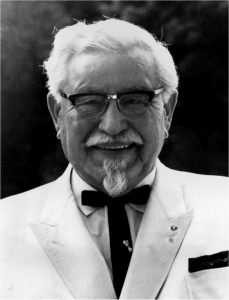Oh, English! (And Its Strangely Spelled Words)
English is a quirky language. Because it’s been constantly changing and borrowing from other languages for hundreds of years, it’s no surprise that the spellings of some words make little to no sense at all. From silent letters to vowel and consonant combinations that are pronounced differently despite looking similar, it can be quite confusing even if it’s your native language. Let’s take a look at five of the most strangely spelled words we come across almost daily.
Knead
 It rhymes with need and it’s what you do to dough to make bread, but why do we need the /k/? This oddity dates back to the early sixteenth century when Gutenberg’s printing press was becoming the standard method for making books. Now that publishers (instead of scribes) were having their say, they standardized spellings as they saw fit. It also happens to be during a period referred to by linguists as The Great Vowel Shift. People were pronouncing vowels differently but the publishers apparently didn’t take note. Words with /ea/ sounds especially suffered as knead, head, bear and great all have different sounds. In addition to the vowels changing, /gn/, /wr/, and /kn/ words lost the sound of their first letter, but retained their archaic spelling.
It rhymes with need and it’s what you do to dough to make bread, but why do we need the /k/? This oddity dates back to the early sixteenth century when Gutenberg’s printing press was becoming the standard method for making books. Now that publishers (instead of scribes) were having their say, they standardized spellings as they saw fit. It also happens to be during a period referred to by linguists as The Great Vowel Shift. People were pronouncing vowels differently but the publishers apparently didn’t take note. Words with /ea/ sounds especially suffered as knead, head, bear and great all have different sounds. In addition to the vowels changing, /gn/, /wr/, and /kn/ words lost the sound of their first letter, but retained their archaic spelling.
February
We’re all familiar with silent letters that appear at the beginning and end of words, but there’s a silent /r/ right in the middle of this one that’s not a result of the aforementioned Great Vowel Shift. In the 16th and 17th centuries, people started to re-introduce Latin roots to a lot of words. Apparently making words look more classical also makes them appear fancier and thus the user appears more intelligent. So, the word for the second month of the year looks more like Februarius despite the confusion that was bound to ensue.
Receipt
The Latinizing frenzy is to blame again. Though no one pronounced a /p/ when it was introduced to English from French, those in power decided (for apparently no reason) that it would look better if it was squeezed in anyway. Now the word looks more like the Latin receptus and is a terror for grammar school children and English learners worldwide.
Island
 More Latinizing – big surprise… What is surprising, however, is that island comes from the Old English iillond and has no connections with Latin whatsoever. The powers that be again wanted to torment English learners when they decided an additional /s/ (in reference to the Latin insula) would somehow be a good idea.
More Latinizing – big surprise… What is surprising, however, is that island comes from the Old English iillond and has no connections with Latin whatsoever. The powers that be again wanted to torment English learners when they decided an additional /s/ (in reference to the Latin insula) would somehow be a good idea.
Colonel
The spelling and pronunciation are almost never further apart than they are here, so what gives? There were two different spellings and pronunciations of the word from the time it was introduced to English (coronel and colonel) and instead of keeping and pronouncing the /r/ versus the /l/, they decided to split the difference and spell it with /l/ and pronounce the /r/. Yeah, that makes sense, right?
What are some other words with strange spellings?


